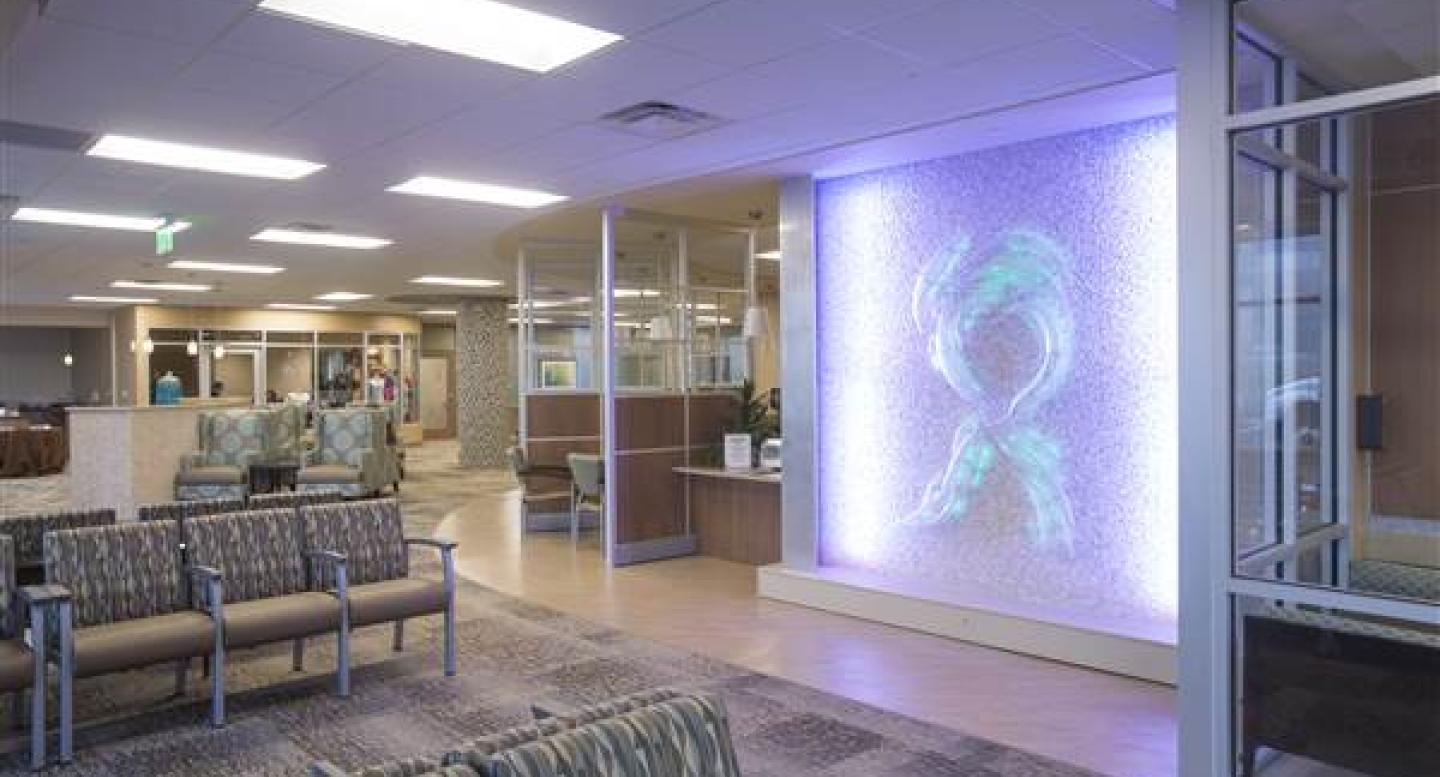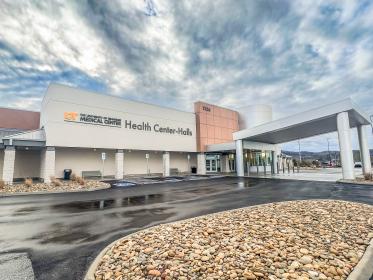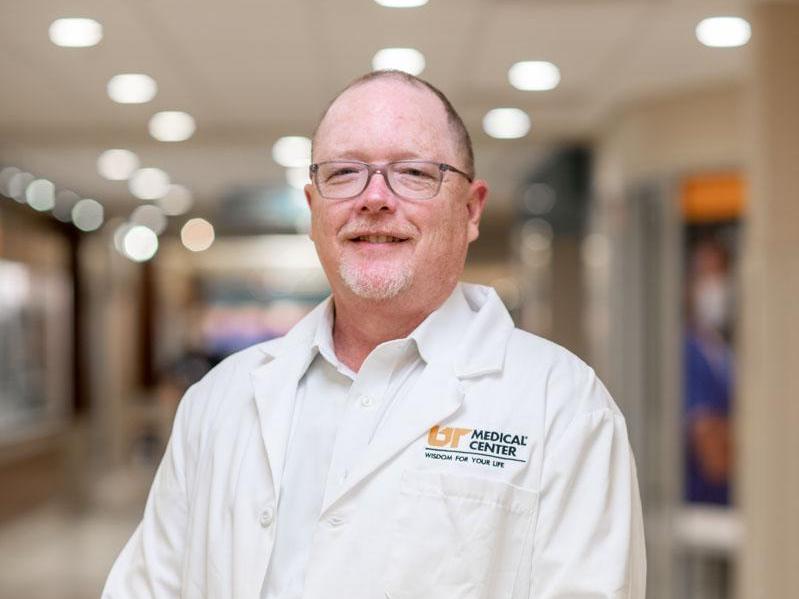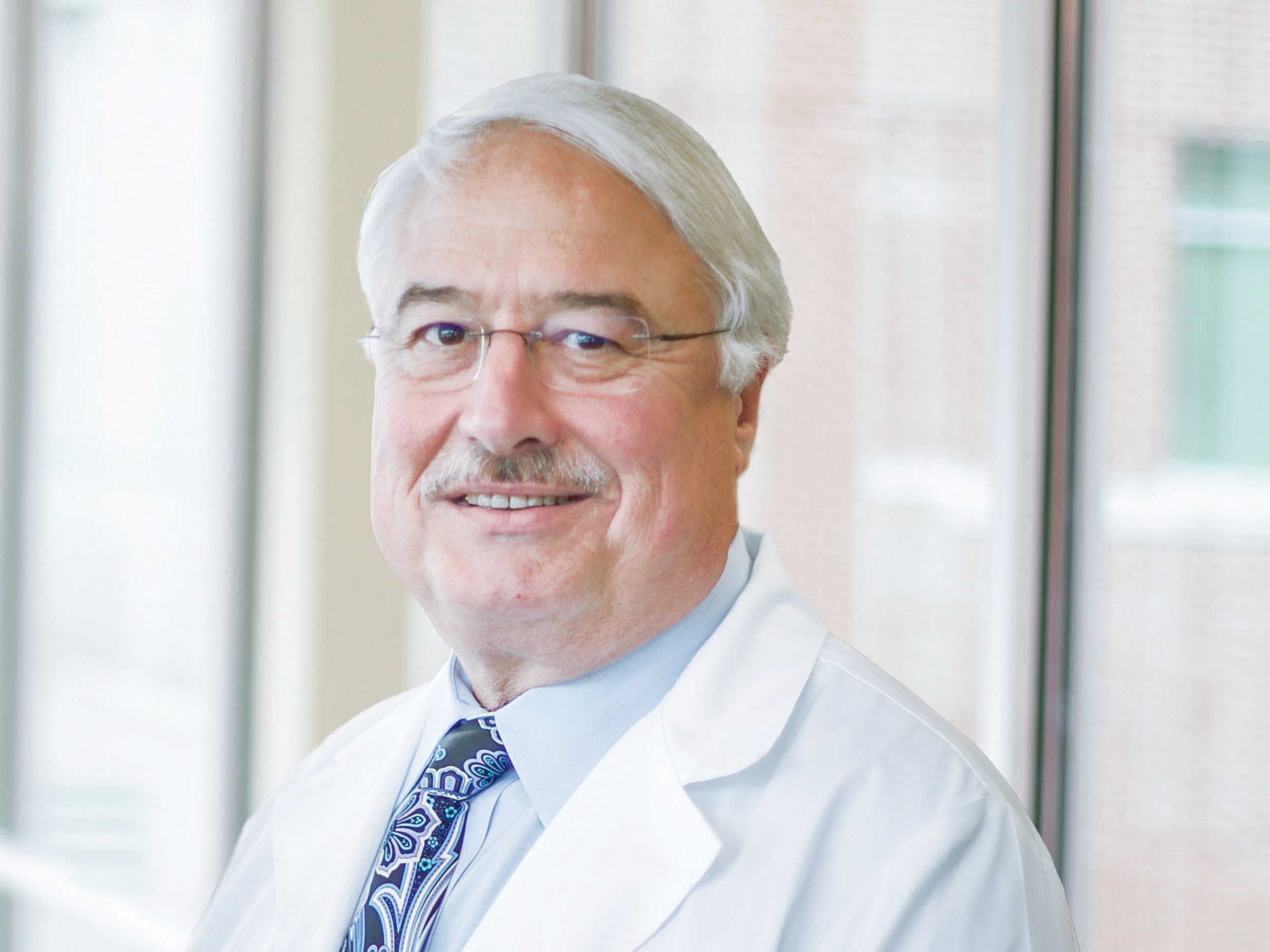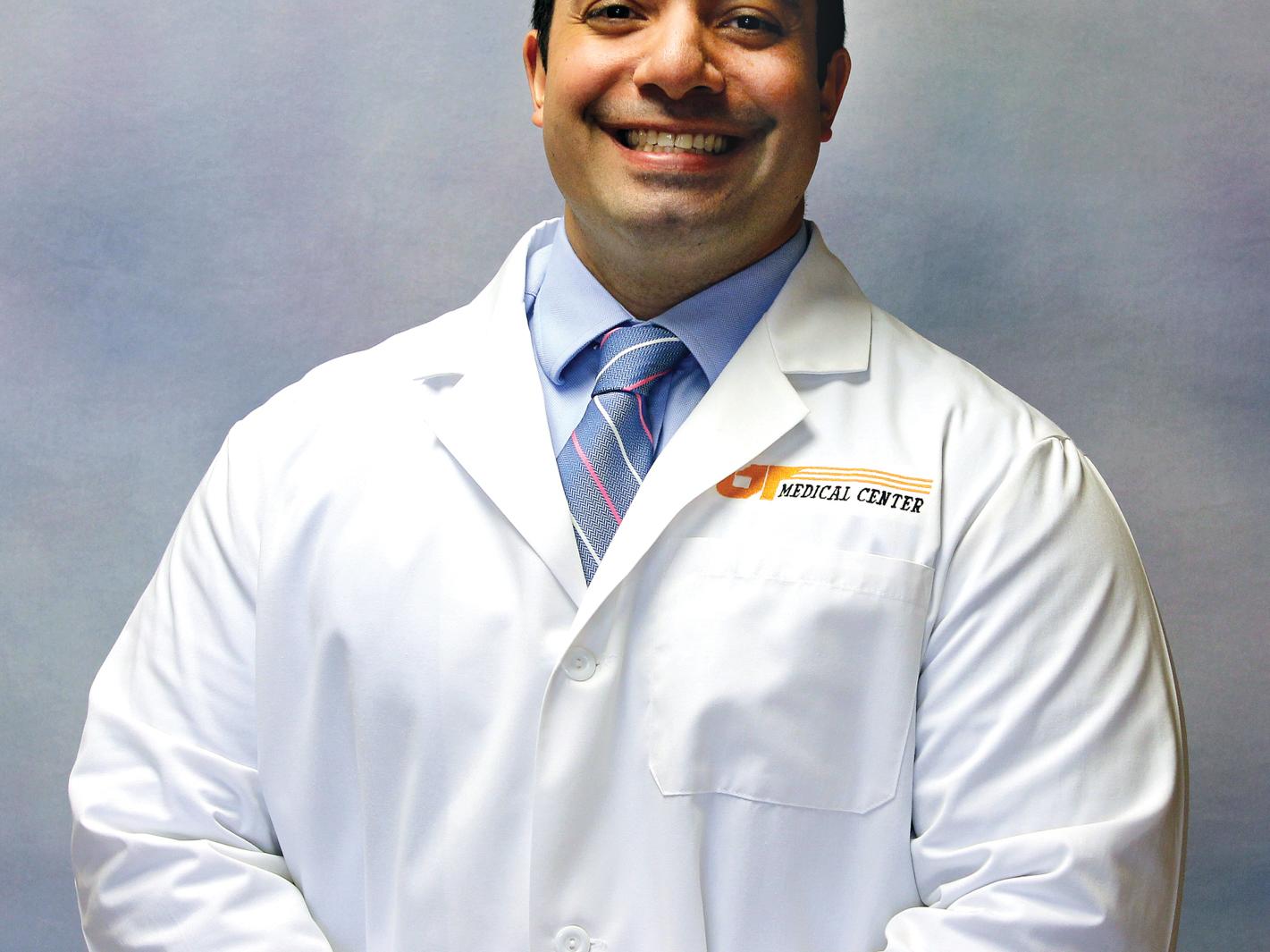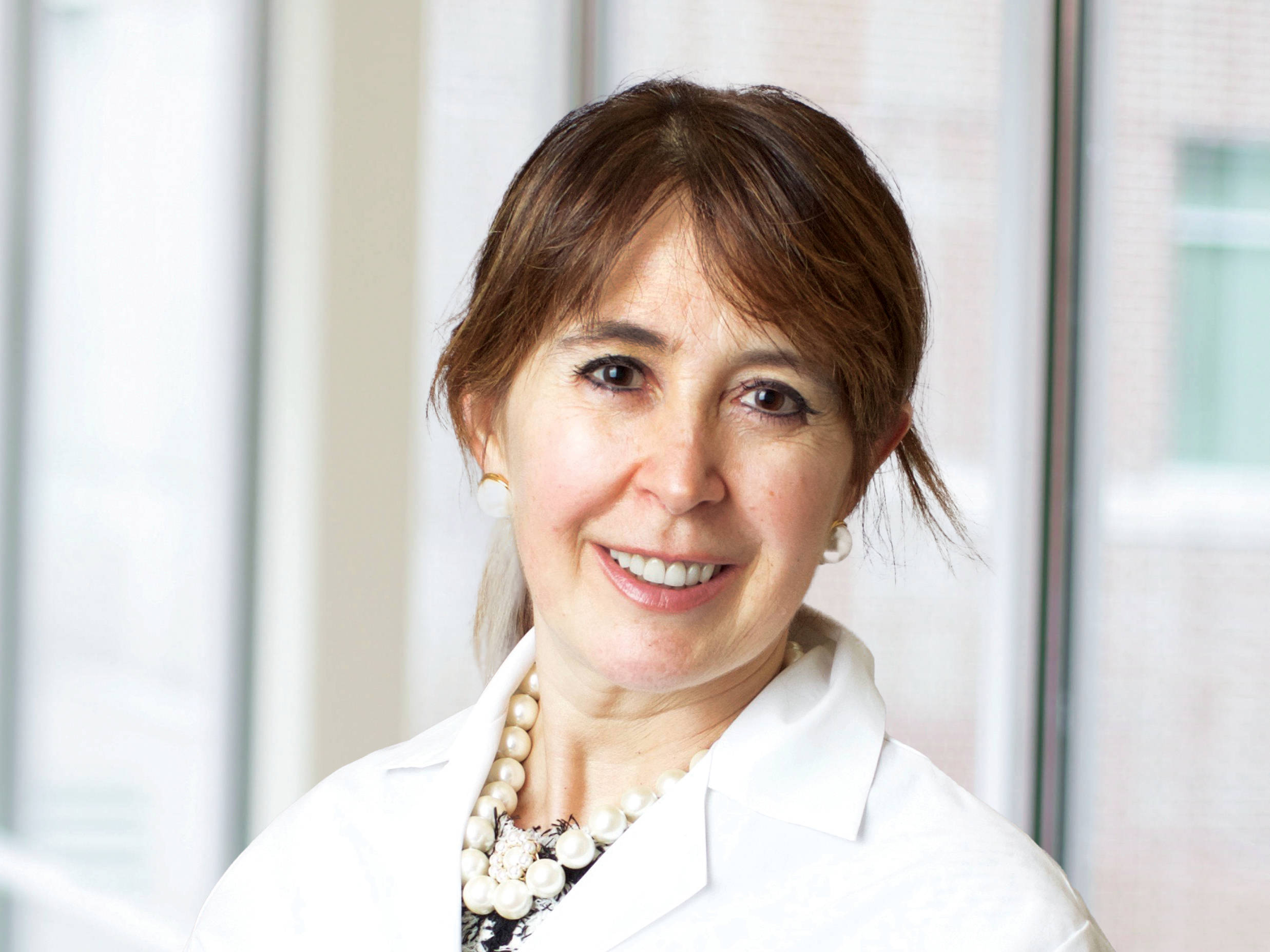Overview
The Melanoma and Soft Tissue Tumor (MASTT) Service at The University of Tennessee Medical Center Cancer Institute specializes in the treatment of skin cancers and soft tissue tumors such as:
We offer comprehensive treatment of both benign and malignant soft tissue tumors (sarcomas).
“The key to successful treatment of cancers is early diagnosis.” says James M. Lewis, MD, Director of the MASTT Program. Members of the MASTT program are broadly trained in oncology and have expertise in the treatment of skin cancers and sarcomas.
Early detection and treatment of skin cancers provide an excellent opportunity for a cure. The MASTT program promotes the prevention and early detection of skin cancers through community outreach, which provides education and screening for all ages, community members, and health care providers.
Our Treatment Options
The Cancer Institute at The University of Tennessee Medical Center offers the broadest spectrum of cancer specialists and services to care for our patients with skin cancer. Cancer patients receive all of their cancer care including surgical consultations, radiation therapy, genetic counseling/testing, chemotherapy infusions, and supportive/integrative health services, all in the same building.
Advanced treatment options for patients with skin cancer/melanoma include isolated limb infusion and clinical trials. The incidence of skin cancer is higher than prostate, lung, breast, colon, uterine, ovarian and pancreatic cancer combined. More than 90% of all skin cancer cases are a result of sun exposure.
Patients are reviewed at our weekly multidisciplinary conference where surgeons, medical oncologists, radiation oncologists, radiologists, pathologists, genetic counselors, nurses and clinical trials coordinators gather to determine the best individualized treatment plan for each patient. This level of coordination ensures that patients are receiving the highest level of care, offering the best outcomes and quality of life.
For early-stage melanoma, treatment most commonly consists of surgery. Some cases, particularly those involving late-stage melanoma, may require further treatment. Treatment options include:
- Chemotherapy – Not often used for melanoma but may be recommended if the cancer has spread to other areas of the body.
- Isolated Limb Infusion
- Radiation – High energy rays used to target and kill cancer cells.
- Surgery
- Lymphoscintigraphy – a test to identify the sentinel node
- Sentinel Lymph Node Biopsy
- Skin Graft
- Wide Local Excision
- Targeted Therapy – A newer form of treatment using drugs to more precisely attack cancer cells.
Dermatologists
At the University of Tennessee Medical Center, we partner with most dermatology groups in our community. Dermatologists specialize in the treatment of both malignant and non-malignant skin problems. Many also offer cosmetic services. If you are diagnosed with a cutaneous malignancy, physicians in the MASTT program will partner with your dermatologist to ensure safe follow-up and survivorship practices.
Pathologists
The University of Tennessee Medical Center’s Department of Pathology provides expert surgical pathology services which are critical to the diagnosis and classification of colorectal cancers. An accurate diagnosis involving both gross and microscopic examination of tissue, body fluids and cells is a requisite to determining an individualized treatment plan for each patient.
Special tests and molecular markers are also performed by the Pathology Department which provide additional information important to the multidisciplinary team when recommending the most appropriate treatment. The Department of Pathology also offers a second review and opinion of slides and reports from other facilities. Our team of board certified pathologists includes pathology faculty members who specialize in specific cancers and have extensive experience evaluating and accurately characterizing cancerous tissue specimens.
Radiologists
Our MASTT radiologists are a distinguished team of board certified, highly skilled physicians with specialized training in the diagnosis of melanoma and soft tissue diseases. Our physicians have met the American Board of Radiology certification standards and work closely with referring physicians to ensure patients receive individualized imaging care.
Your care team may also include:
- Medical Oncologists
- Radiation Oncologists
- Surgical Oncologists
- Interventional Radiologists
- Integrative Health
Clinical Trials
Cutting-edge treatment is offered to patients along with opportunities to participate in National Cancer Institute and pharmaceutical clinical trials. Clinical trials are research studies made available to patients that offer the newest treatments and test new ways to prevent, detect, diagnose and treat diseases.
For more information, visit Clinical Trials.
Your Next Steps
If you or a loved one has been recently diagnosed with a skin cancer, we are here to help. One call to the nurse navigator at the Melanoma and Soft Tissue Tumor Service by the patient or the referring physician results in a prompt evaluation and the expediting of care for each patient with findings suspicious for cancer or a known cancer diagnosis.
Navigators are specially trained nurses who provide assistance to patients and families by coordinating care and providing information, education and support.
All specialists and procedures are available in one location on the campus of The University of Tennessee Medical Center.
Our Cancer Institute team is here for you in what can be a very stressful time. Please don’t hesitate to ask questions and request help when you need it. Our new patient section will provide you additional information about the Cancer Institute and everything you need to know to prepare for your first visit.
